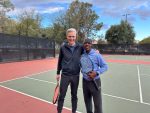Asset Building First
Have you ever heard the phrase, “pay yourself first?” That is a very good rule of thumb after taxes, tithing, and protection considerations. “Pay yourself first” means we should save for future needs before buying the things we want now.
Most people find it very difficult to build significant assets because they do not have the discipline to sacrifice what they want now so they can have what they want most at some future date. They erroneously believe that they just need to get lucky with a risky investment or win the lottery to be wealthy.
Building wealth can be a relatively simple process. All we need to do is consistently save a significant portion of our income and invest it wisely. If we are not willing to do this, we may never be able to get ahead financially or retire with a decent standard of living. Although it is simple, it is not always easy.
Lifestyle Spending Second
Finally, we get to spend some money! If we can be disciplined enough to take care of all the preceding concerns first, then live within whatever is left, we will essentially be financially bullet-proof throughout life. When we know we are taking care of the other essential areas, spending money is more fun because we do not have to feel guilty or wonder whether we can really afford to spend it.
Most people are stressed out about money because they have it all backwards. They spend everything they make—or even more than what they make—to meet their current wants, then hope that nothing bad ever happens to them. They live paycheck-to-paycheck with very little flexibility. They view every little unexpected expense as a major crisis because they have no wiggle room.
Do you like to keep a budget? Most people I have met hate it with a passion and have a very hard time keeping one. If you fall into that category, I have good news for you. When you take care of your taxes, tithing, protection, and savings first, you no longer have to keep a budget. Just drain your account at the end of every month, but don’t spend more than what is left in your account. Then repeat the process at the beginning of the next month.
Of course you may still benefit from keeping a more detailed budget, but if you find that you just cannot get it going, it is not absolutely necessary. If you abide by these cash flow rules, the important things will always be taken care of.
Avoid Debt like The Plague
In order to make this cash flow hierarchy work without having to budget everything we spend, we must have the discipline to stop spending when we run out of money for the month. Most of us are so driven by our desire to keep up with the Joneses and to have what we want now without regard to what it might cost us later that we readily go into debt for whatever we want.
We should treat the act of acquiring debt with grave seriousness. Although we tend to treat it casually, it is nothing short of self-imposed servitude that threatens our financial security, marriages, dreams, and sanity.
At one time The Plague was the most dreaded disease. Historians estimate that during the 14th century it wiped out at least 30% of the European population.[i] What percentage of Americans has been wiped out financially by the modern plague of excessive debt?
Avoiding debt is much easier than trying to get out of debt, just like avoiding that first cigarette is much easier than trying to quit smoking. Whenever we go into debt we are spending part of our future now without knowing whether we will be able to afford it later. Many successful people have lived by the motto, “If I can’t buy it with cash, I can’t afford it.”
Reducing, eliminating, and avoiding debt are all critical to long-term financial security. High monthly payment obligations extending into our golden years may postpone or jeopardize our ability to retire. Interest charges can consume our potential to build wealth.
If I buy a new TV for $2,500 on a credit card charging 18% interest and always make only the minimum monthly payment, it would take me 28 years to pay it off, and my total cost would be $8,397 for a TV that would be long gone by then. A $300,000 30-year fixed mortgage at 6% interest ends up costing $647,509 over the course of 30 years.
We cannot make financial progress by paying 18% in credit card debt while earning 6% on our investments. In order to become financially secure, we must find a way to make interest work in our favor, not against us.
[i] Suzanne Austin Alchon, A Pest in the Land: New World Epidemics in a Global Perspective (University of New Mexico Press, 2003), 21.
Adam Dawson, CFP® is a Principal at Capstone Capital and the author of Timeless Principles of Financial Security.
- Should You Invest At the Peak of the Stock Market? - August 5, 2021
- Our Thoughts on Bitcoin: Capstone Capital Wealth Advisors - May 12, 2021
- Are You Over-Insured? - September 12, 2017





